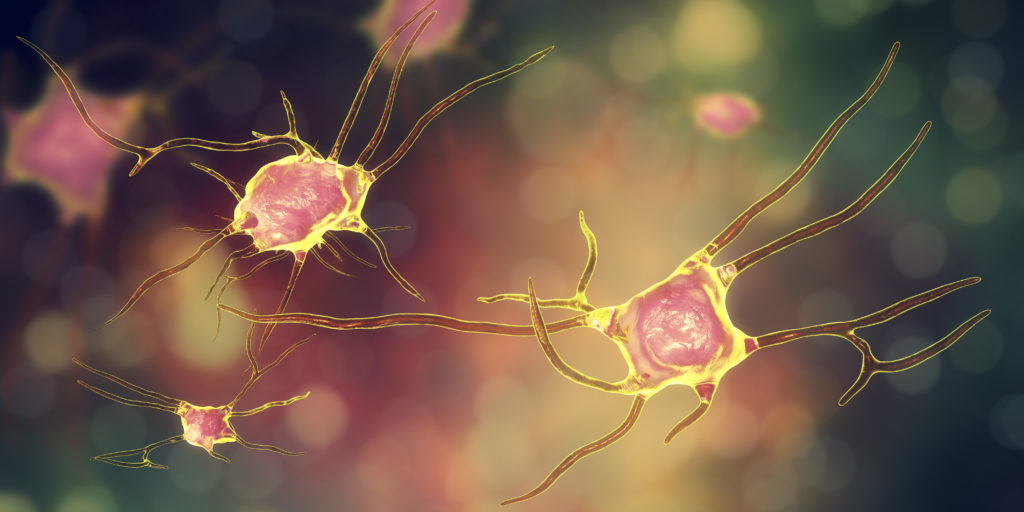Quick Hits
Daily brief research updates from the cognitive sciences

Always nice to know that you brain can grow – and it is still met with surprise when I explain how this can happen to audiences when speaking in public. But this recent research gives some fascinating insights into a new mechanism of growth in the brain.
Researchers around Terry Dean of the Children’s National Hospital in the USA have found a mechanism that is controlled by daily rhythms and this could lead to new insight and more effective methods to help recovery after brain injury.
Your brain cells, neurons are pretty fixed with new generation of cells only in very limited areas in the brain. However, they can rebuild and strengthen connections. There are also group of cells called micro glia or glial cells and these are considered the brains “helping” cells – they are also essential to healthy brain functioning performing many critical functions.
One of these goes under the technical name of NG2-glia, or “oligodendrocyte precursor”, sorry I know that won’t help you (in short, it’s one of the brain’s helping cells). Anyhow these are one of the few cells in the brain that can continuously regenerate. And what the researchers found is that these follow daily rhythms with proliferation of these cells coinciding with the highest levels of a factor known as Bmal-1RNA. This is a protein that helps the body clock stay in rhythm and is highest when we should be most active – during the day.
What is interesting is that this can help us guide recovery better by taking into account times of day during treatment – we also know that traumatic brain injury (TBI) can disrupt daily rhythms which could explain some of the negative effects.
Also, of interest is that we would probably assume that much healing would take place as night – but this shows not so in this particular case.
This highlights once more the importance of daily rhythms in just about everything!

Andy Habermacher
Andy is author of leading brains Review, Neuroleadership, and multiple other books. He has been intensively involved in writing and research into neuroleadership and is considered one of Europe’s leading experts. He is also a well-known public speaker, speaking on the brain and human behaviour.
Andy is also a masters athlete (middle distance running) and competes regularly at international competitions (and holds a few national records in his age category).
References
Terry Dean, Aissia Victoria Koffi, Evan Goldstein, Javid Ghaemmaghami, Vittorio Gallo.
Endogenous circadian clock machinery in cortical NG2-glia regulates cellular proliferation.
eneuro, 2022
DOI: 10.1523/ENEURO.0110-22.2022
More Quick Hits
How Meditation Helps Pain In Your Brain
Quick HitsDaily brief research updates from the cognitive sciences es, meditation can help with pain by changing your experience of it. I reported on that here. Another piece of research just published shows that how experienced meditators and...
When Stress Is Good For Brain Functioning
Quick HitsDaily brief research updates from the cognitive sciences tress gets a bad rap – understandably it is a negative experience and has been shown over long periods of time, and with high intensity, to cause multiple negative outcomes, from...
Put Your Smartphone Down and Let your Mind Wander – You’ll Be Happier
Quick HitsDaily brief research updates from the cognitive sciences here’s a lot been said about smartphone usage and how it can be used and abused. Most of this concern revolves around usage in children or teenagers, however, with some research...
The Amazing Impact Of Reaching Out To Your Old Friends
Quick HitsDaily brief research updates from the cognitive sciences few weeks ago a friend I hadn’t seen for about 10 years sent me a message and asked if I had time to meet up. I was elated. "Sure," I immediately messaged back, "when and where?!"...
Really? Belief In Conspiracies Not Increasing
Quick HitsDaily brief research updates from the cognitive sciences e may feel like we’re in an age of conspiracy theories, that social media is turbocharging the wild and wacky theories, and the so-called information bubbles are sending people down...
You Wake Up 100 Times Each Night – And That Helps Memory
Quick HitsDaily brief research updates from the cognitive sciences have written numerous posts and articles on sleep and the brain (review here), and the evidence is crystal clear. Good and consistent sleep is essential to all aspects of physical...






